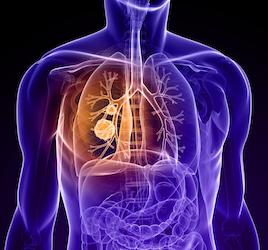
In 2020 I wrote a hypothesis paper about resonance breathing as a possible adjunct to COVID therapy.1 This weekend I found that scientists in Germany had a similar idea and implemented a clinical trial for COVID patients with pneumonia.2 The idea was that modulating the autonomic nervous system and vagus nerve by resonance breathing would modulate anti-inflammatory pathways and calm the cytokine storm. This is based on other studies around HRV biofeedback, inflammation, and the vagus nerve.3,4,5,6
It turns out the idea works! Further research will be to see if it can be more helpful by starting at the beginning of COVID symptoms, rather than waiting for admission to the hospital. Also, they cannot be certain if the psychosocial interactions that the patients in the resonance breathing arm of the study received were part of their healing response.
-
Lowenfels (2020). Six per minute non-invasive ventilation: Resonant Frequency breathing for COVID-19? ↩︎
-
Balint et al. (2021). A randomized clinical trial to stimulate the cholinergic anti-inflammatory pathway in patients with moderate COVID-19-pneumonia using a slow-paced breathing technique. ↩︎
-
Nolan et al. (2012). Behavioural modification of the cholinergic anti-inflammatory response to C-reactive protein in patients with hypertension. ↩︎
-
Purcell et al. (2011). Brief resonance frequency training can reduce C-reactive protein levels in normals (Poster Abstract). ↩︎
-
Lehrer et al. (2010). Voluntarily Produced Increases in Heart Rate Variability Modulate Autonomic Effects of Endotoxin Induced Systemic Inflammation: An Exploratory Study. ↩︎
-
Thayer et al. (2011). Inflammation and cardiorespiratory control: The role of the vagus nerve. ↩︎